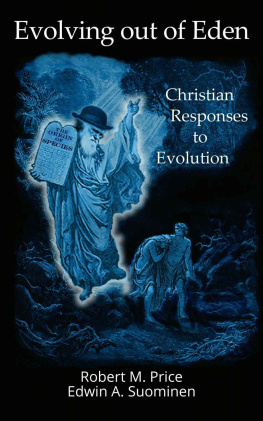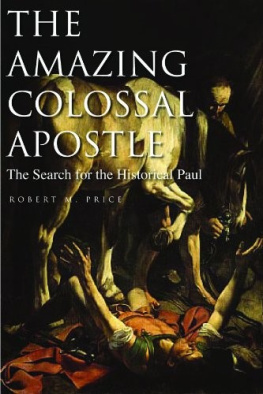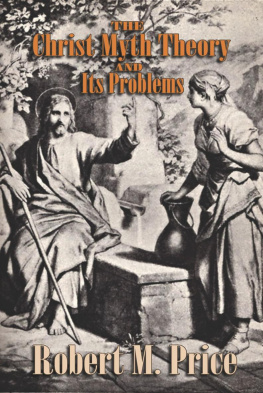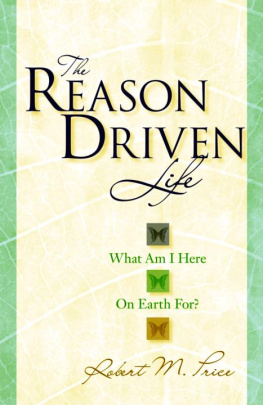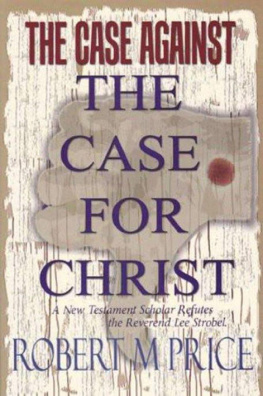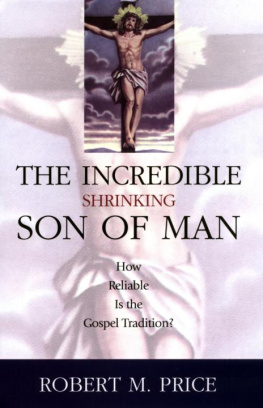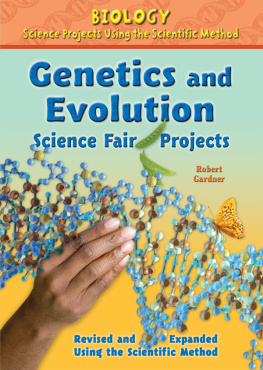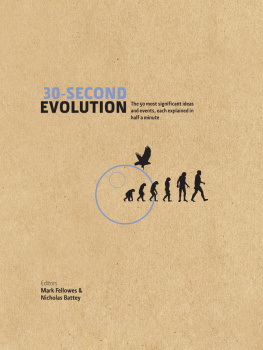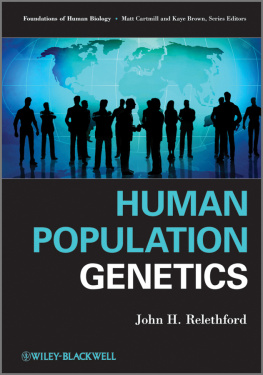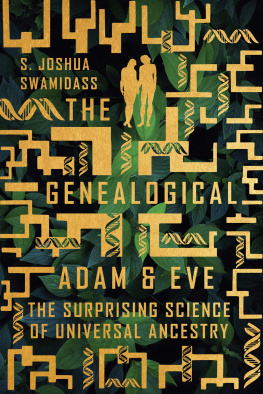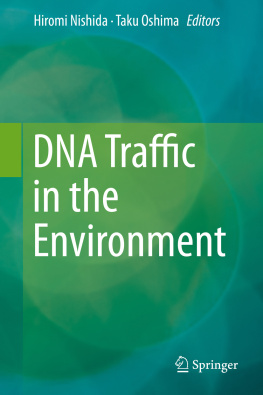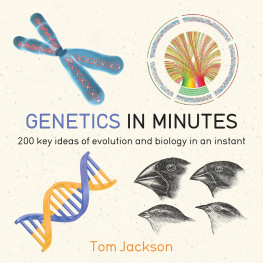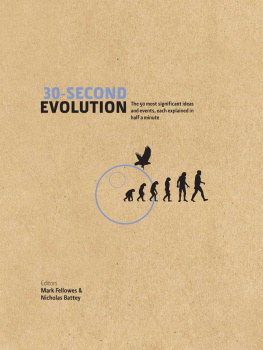Evolving out of Eden
Christian Responses to Evolution
Robert M. Price
Edwin A. Suominen
Tellectual Press
tellectual.com

TELLECTUAL PRESS
tellectual.com
Valley, WA
Copyright 2013 by Robert M. Price and Edwin A. Suominen
All rights reserved. Please do not make or keep unauthorized copies of this book.
E-book ISBN 978-0-9851362-3-9
Tellectual Press is an imprint of Tellectual LLC.
Scripture quotations are from the King James Version unless otherwise indicated. Those cited with NASB are taken from the New American Standard Bible, Copyright 1960, 1962, 1963, 1968, 1971, 1972, 1973, 1975, 1977, 1995 by The Lockman Foundation (www.Lockman.org). Used by permission.
Cover image: Charles Darwin expels Adam and Eve from the Garden of Eden, holding a tablet inscribed not with the Law, but On the Origin of Species (highly abridged), which accuses the First Couple of never existing. Thanks to Carol Selby Price for this fine re-interpretation of Adam and Eve Driven out of Eden by Gustav Dor (1865).
Thanks to Edward Babinski, Samantha Bishop-Strand, Jerry Coyne, Jaco Gericke, Russell Kolts, John Loftus, Dave Mack (an excellent proofreader who happens to be blind!), Justin Powell, Charles Shingledecker, and Victor Stenger for their review of part or all of the manuscript, and their encouragement, corrections, and suggestions. They of course bear no responsibility for any errors that remain. Also thanks to Brian Suominen for his assistance with the index.
To the fossil huntersscientists and assistants alikewho have dedicated so many patient hours to finding the evidence that so many choose to ignore.
Table of Contents
Introductions
Conservative Christianity is caught between the embarrassments of simple fiat creationism which is indigestible to modern science, and evolutionism which is indigestible to much of hyper-orthodoxy.
Bernard Ramm,
The Christian View of Science and Scripture

In the Beginning
Can theology after Darwin, instead of retreating from or only reluctantly accommodating Darwinian ideas, actually embrace them with enthusiasm?
John F. Haught, God after Darwin
The now-indisputable reality of lifes evolutionary originsespecially human lifechallenges some foundational doctrines of the Christian faith. The issues range from the nature of God as a creator and guiding hand in the lives of mankind to the Fall of Man as the impetus for the sending of a Savior. With the evidence for evolution continuing to pile up in the fields of paleontology, biology, and genetics, the responses of Christian leaders have themselves evolved into different forms. The biblical literalists remain a loud and stubborn voice of denial, yet they have found themselves in a strange and unwitting alliance with the New Atheists by denying that evolution is in any way compatible with Christian doctrine. Many concerned believers are left walking a troubled middle path between Genesis and genetics, wary of the perils of losing their cherished faith on the one hand or their intellectual integrity on the other. Numerous science-savvy theologians have emerged to help them on their way.
Evolving out of Eden is a survey of the resulting theological attempts to grapple with the significance of the theory of evolution for Christian belief. There is now a cottage industry of guides working to establish their own different trails through the hostile territory outside the comforting faith-fairyland of Eden. Some remain so close to biblical literalism that we wonder if they really understand the realities of evolution, despite their often impressive scientific credentials. Others eloquently and accurately expound on the science and their acceptance of it, but seem to have hollowed out their scriptural and credal commitments in the process, to the point where we wonder what they mean by the claim of being Christian at all. Between the two extremes, there are now many paths on this well-trod ground.
Well try to map out the lay of the land as we see it. What we dont seek to do is blaze any new trails of our own. Nor do we find any of the existing ones compelling, despite having begun with a conscious effort at maintaining an open mind about the whole thing. As well discuss shortly when introducing ourselves as your Escorts out of Eden in the , one of us initiated his informal study of evolution as a believing but troubled Christian, and we got to working together on this book as a way of evaluating the options left for belief in the face of scientific reality. Despite the sincere and fervent efforts of some writers who are highly qualified in both the theological and scientific realms, what we found just didnt add up for either of us. Nonetheless, we will seek to evaluate their attempts to accommodate evolution as fairly as we can, though you now know where we both came out.
In recent years, the New Atheists have put Christians on the defensive regarding their beliefs, with books full of scientific objections like The God Delusion by Richard Dawkins and Breaking the Spell by Daniel Dennett. Just as influential, perhaps even more so, are atheist voices from newer media: blogs, social networking, podcasts, and video. Predictably enough, theres been no shortage of literature, both online and in published books, that seeks to reassure the faithful that they can safely disregard (or contort beyond recognition) scientific findings and cling to the ancient myths of Genesis.
Well make note of the claims of the creationists on one hand and try to convey some of the amazing science behind evolution on the other. The chapter is our laymens introduction to evolutionary science and what Darwin aptly called the grandeur of this view of life. But our major focus will be on those trying to make it all fit together somehow.
Branches of the Tree
The layout of this book centers around three main branches of theological conception that are impacted by evolution: (1) The Word , i.e., the Bible that was produced by human beings andostensiblytheir God; (2) The Creature , the human writers and expositors of that Bible who themselves claim to be the creatures of that God; and (3) The Creator whose recognition and appeasement is the ultimate object of Christian theology. It seems to us that all the theological issues posed by evolution can be classified into one of these three branches, though of course some overlap is inevitable.
The tree-branch metaphor is inspired by the idea of an evolutionary tree of life, which appearedperhaps for the first time in any extant diagramin Darwins 1837 first notebook on the Transmutation of Species. Figure 1 reproduces it with some handwritten notes on the page. (The text of Darwins I think note, not fully shown here, concerns the degree of relation between species and their common ancestors.)

Figure Darwins famous I think sketch, 1837.
Our three branches go beyond the tree-branch metaphor in one important respect, however: The theological conceptions broaden in scope from one to the next. The Word (I) exists within the minds of the humans who wrote it, who contemplate and interpret it. Outside of human thought, the words of scripture mean nothing, whether those words are considered inspired or not. The human being is in turn The Creature (II) that Christian theology treats as the pinnacle of Gods own creative contemplation. Finally, at the outermost level of Christian conceptualization, there is God, The Creator (III), who is supposed to have existed even when humans did not.
Next page
